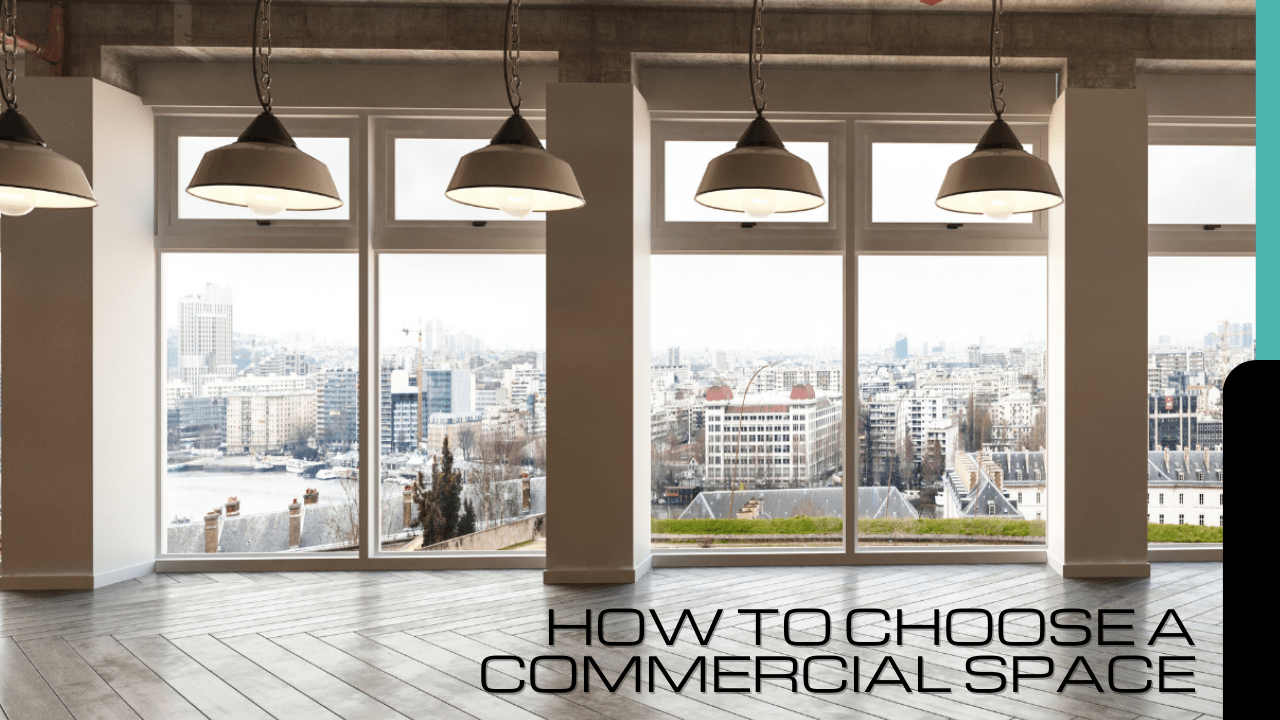
Investing in Prince George’s County commercial real estate has the potential to be an excellent investment, whether you’re an experienced investor or new to commercial spaces and trying to diversify your real estate portfolio.
The process can feel overwhelming, and while there are many details demanding your attention, such as financing and licenses, you’ll also have to focus on a pretty basic question: where should you invest? How do you choose a commercial space in Prince George’s County?
Commercial properties in this market are extremely profitable. You’ll find it’s not hard to locate and place tenants, and you’ll be earning high rents with great lease terms. But, that success can only be found when you have the right space to offer potential commercial tenants.
Depending on the market cycle, buying the right commercial property at the right time and purchase price can ensure long-term wealth, appreciating values, and high ROI. Commercial buildings fall into many categories, each with their own nuances, and you’ll have to consider those things when you’re looking at potential opportunities.
Look for Location in Prince George’s County Commercial Spaces
Location is always going to be a driving factor in any real estate transaction, whether we’re talking about residential properties or commercial – renting or buying.
The type of location you’re looking for depends on the type of commercial space you want to buy.
If you’re interested in investing in retail space, the location needs to be visible and easily accessed. Your tenants will be looking for space based on whether there’s a large population of potential customers in the area. When you’re buying storefronts, you’ll want the space to be in an area that’s walkable and close to metro stops and bus routes. If you’re just outside of Prince George’s County and looking for retail space that includes a strip mall or a shopping center, you’re looking for parking and easy access to highways and major roads that your tenants’ shoppers will use to reach the space.
Office space has its own nuance. Your tenants may have customers and workers who drive into the city, so you’ll need to consider parking. Are there public garages nearby or does the space you’re thinking about buying come with its own parking? If you’re targeting tenants who work in government, you’ll want to make sure the location you choose for your office building investment is close to Capitol Hill, K Street, and executive or municipal offices.
Some commercial property will not have to worry about traffic and visibility quite as much. As an investor, perhaps you envision buying up industrial space that could be used as a data center or a warehouse. In this case, proximity to population centers and foot traffic matters very little.
Consider Neighbors with any Commercial Space
Don’t choose a commercial space in Prince George’s County without knowing who your neighbors are.
Your tenants will be looking for neighbors who complement what they do, but they won’t want competitors. If you’re buying space that you expect restaurants might want to rent, for example, choose a neighborhood with a string of successful restaurants, but look for tenants that aren’t already represented. You can’t convince a pizza place to move in if the neighbors are another pizza place and an Italian restaurant, for example.
You can’t always assume the current tenant mix will stay the same, either. Get to know how the local economy moves and pay attention to new stores, offices, restaurants, and other commercial enterprises that are opening in the area before you buy.
Get to know your surroundings and who else has set up businesses. Health-care professionals who are looking to rent office space for a medical practice will always want to be close to hospitals or labs. If you’re buying space that you expect will rent out to dance studios, gyms or fitness clubs, don’t buy space next to the YMCA. Instead, look for space that has a coffee shop or a smoothie bar nearby.
Commercial Space Size and Features
Try to be as precise as possible when you’re looking at commercial spaces you may invest in. You’ll need to know how large or small of a space you’re looking for. Are you trying to buy an entire building or just a few floors?
Establish your minimum and maximum space requirements before you begin looking for a profitable commercial space. You need to think about the tenants you’re hoping to attract as well. They may be moving because their space is too large or small. How can you adjust what you have to fit their needs?
Think about usable space versus total square footage. If you’re thinking about buying a building with a basement that’s completely unusable or a few very small offices or large industrial spaces that will be hard to rent, you might want to keep looking. Usable space is profitable space. You may have common areas like lobbies and lots, but when you’re choosing a commercial space, you need to think about how much of that space can be rented out and turned into income.
Some of your tenants may grow in the future. Are you going to invest in enough space to accommodate those plans for growth to avoid losing them to other buildings?
The interior features are going to be just as important as the size of the space. Again – you need to think about your ideal tenants. If you’re buying an office building, you need to think about private offices. Cubicles. Conference rooms and meeting space. Every commercial tenant is going to need storage, whether it’s a shop that needs closets to hold inventory or an office that needs to store supplies and equipment.
What kind of technology will you be able to offer? If your commercial tenants are going to need an elaborate computer set-up in a room that’s extremely cool, you’ll need to be prepared to offer that. Think about these particulars when you’re searching for the right space for your investment dollars.
Take a Look Around and Do Your Due Diligence
Choosing a commercial investment space has to be intentional.
What are your investment goals? That’s where this starts. You need to know why you’re investing, why commercial property is more important to you than residential, and who you’re hoping to attract to rent your space.
Work with a good commercial real estate agent who understands your criteria and can help you locate properties that serve your needs. Don’t let yourself jump at a deal that looks too good to be true. The opportunity has to meet the needs of your portfolio and satisfy your investment goals. If you’re looking for an office building, don’t get distracted by some prime retail space.
Work with a commercial property manager who knows the Prince George’s County market, too. Your property management partner can help you understand what kind of tenants you’re likely to attract, how much rent you can collect, and what you can expect to spend on maintenance and upkeep.
Do some research and due diligence before you make an offer on a commercial property. Your broker and management company can certainly help with some of this, but you want to know enough about the market and what you might be getting to make smart decisions.
Here are some of the things you’ll want to ask your property manager before you decide to make an offer on a particular space you’ve identified:
-
- What is the property being used for now?
- Is the property occupied with tenants now, and will they stay? Ask to see lease agreements.
- What has the property been used for previously?
- What are the zoning laws and restrictions? Are there types of businesses that will be prohibited? Find out if you can request a zoning change, and what the process would entail.
- How much rental income is being earned now? Is this competitive with other properties? Sometimes, you can see a rent roll before you buy. If the current owner isn’t willing to do that or it’s difficult to get an answer on what the space actually earns, you should be suspicious.
- How much are the property taxes annually or quarterly?
- What kind of condition is the building in? Are there repairs that are needed now? Will the roof need to be replaced in 10 years? Always get a full inspection before you buy.
- How much vacancy is in the area?
Ultimately, you want to know if this particular property makes sense for your investment portfolio.
It’s not like you’re buying a house or an apartment building that you plan to rent out to a handful of residential tenants. Commercial property investments are different, and making a bad investment can cost you a lot more money and waste a lot more of your time.
When you’re looking for the right commercial space, work with a Prince George’s County property manager who understands how to increase the value of the commercial property you own.
 We can help. Please contact us at Stripe Management. We work with owners, investors, and properties in Upper Marlboro, Prince George’s County, Washington, D.C., Capitol Heights, District Heights, Baltimore, and anywhere in the DC metro area.
We can help. Please contact us at Stripe Management. We work with owners, investors, and properties in Upper Marlboro, Prince George’s County, Washington, D.C., Capitol Heights, District Heights, Baltimore, and anywhere in the DC metro area.
